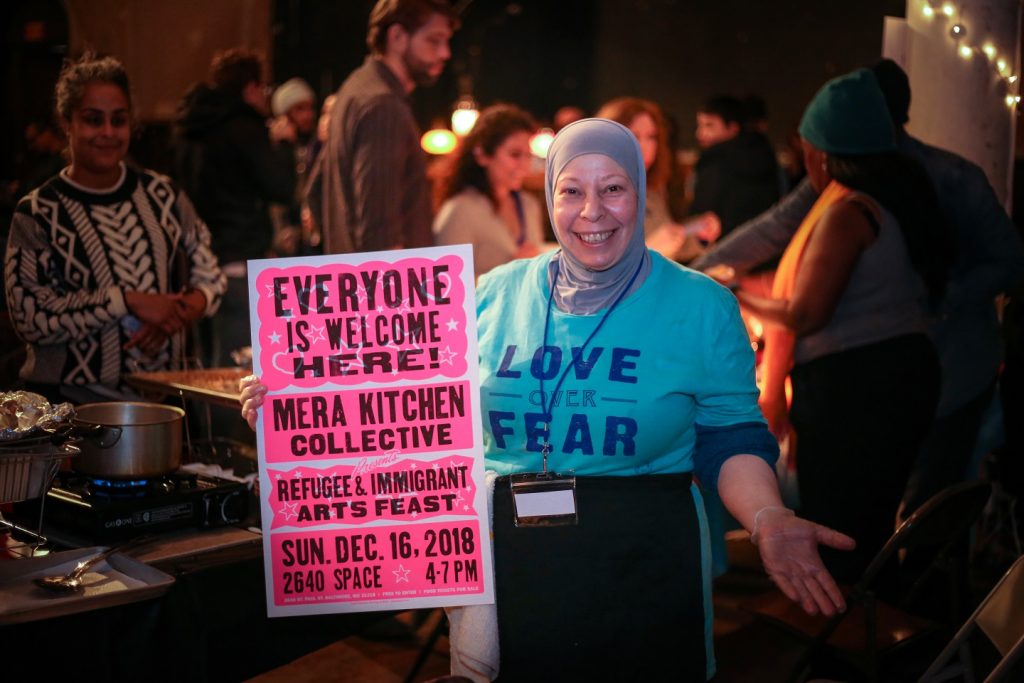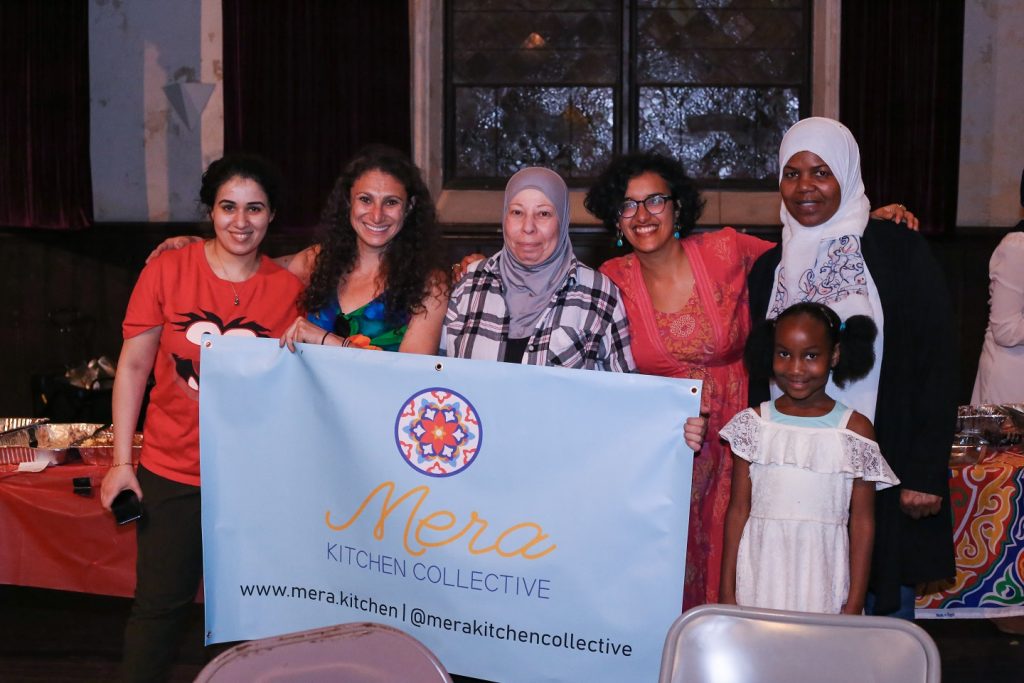Johns Hopkins UniversityEst. 1876
America’s First Research University

Two years ago, Emily Lerman, MPH (SPH ’15) and two colleagues — Aisha Al Fadhalah and Iman Alshehab — met at the Highlandtown branch of the Enoch Pratt Free Library in southeast Baltimore. The choice of location was intentional: Highlandtown is home to a large percentage of the city’s immigrant and refugee population. The group sought to gauge interest in what would become Mera Kitchen Collective, a worker-owned cooperative they created to empower women through cooking and provide an avenue through which they could share their stories. Encouraged by the response, Mera began hosting informal dinners at the homes of friends and family and forging partnerships with local restaurants.
As Lerman and her cofounders began considering the collective’s future, they applied for the 2017-18 cohort of Johns Hopkins Technology Ventures’ Social Innovation Lab (SIL). Open to members of the Baltimore community and Hopkins faculty, students, and staff, the SIL provides entrepreneurs with mentorship, workshops, and funding to help develop their mission-driven ventures. Since 2011 SIL has supported more than 80 organizations.
Today, the Mera Kitchen Collective has five members, including chefs Alshehab, Mona Ahmed, and Zaid Degol, as well as Lerman and Al Fadhalah on the operations side. They work together to manage an increasing workload, including a catering business, special events, and a booth at the weekly Baltimore Farmer’s Market and Bazaar. Lerman speaks about the organization’s growth — and the role the SIL played in it — in this installment of What Happened Next?
Aisha, Iman, and Liliane Makole, my cofounders, can all tell stories about what it’s like to integrate into a new country and city, the kinds of barriers they faced. The idea for Mera came from, “how can we do something collectively that we’re building together, with equal ownership, using food as something to empower women and share stories?”
We’re intentional about having a hybrid for-profit and nonprofit structure, and not just being a nonprofit. We have a nonprofit foundation to address the barriers (lack of access to transportation, childcare) that many newcomers face, addressing issues of equity — and supporting the women who are part of this collective. But the cooperative — the business side — is for profit. We’re paying $15 an hour, which is uncommon in the restaurant industry. And that’s intentional. We want to prove that you don’t need a nonprofit with a top-down directive telling people what to do. We want to be sharing in this together, this communal ownership. A worker-owned cooperative means members have both a share in the business and a voice in the decision making process. This is what creates a culture of empowerment.
We did an exercise in the beginning where we had to contact 40 different people. I felt like that activity pushed us, made us think about who our customer segments would be, how to market different things, what funding would look like. Understanding that there are a lot of people out there you can gain insight from, and the importance of having a specific ask — even if it’s small. There’s a way to ask people for something, even if it’s just for information or connections that can be invaluable for setting up your network later.

I remember Matt Gallagher from the Goldseker Foundation came and spoke to us. At the time, I didn’t have a specific ask for him, but I was able to reach out to him this year — a year later — once things were more clear for us. He’s the head of a $100 million foundation, and I was able to get together with him and talk with him. If you pay attention and work while you’re in the Social Innovation Lab and keep those relationships up, it gives you access.
The Friday after it [the SIL] ended [in April 2018], we had our Refugee and Immigrant Arts Feast. We were learning how to throw a free event and wanted to expose people to different cuisines, different art, music, and performances from refugee and immigrant people in Baltimore. About 550 people showed up. We had 12 different chefs from 12 different countries, some of them not even involved with Mera. We did it again in December and this June, when over 500 people attended. We want Mera to be something accessible and for people to get involved. Building that community and keeping people engaged in an organic way, the relationships that are formed that way, is important to us.
Mera is open at the Baltimore Farmers Market every Sunday from April through December. The collective has also catered nearly 100 events, and continues to do so.
Interested in supporting social entrepreneurship efforts like the Mera Kitchen Collective?
Topics: Johns Hopkins Technology Ventures, Strengthening Partnerships